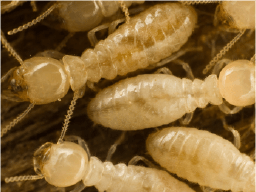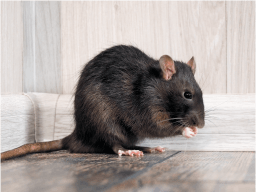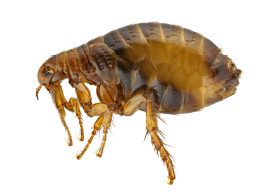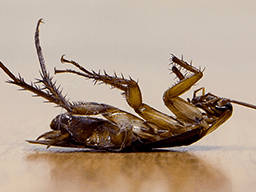Understanding Termite Behavior & How to Get Rid of Them
Need to get rid of termites? It starts with understanding termite behavior — what they eat, where they live and the swarm behaviors as social insects. Need help? Call our professionals today to get started.
Schedule Today!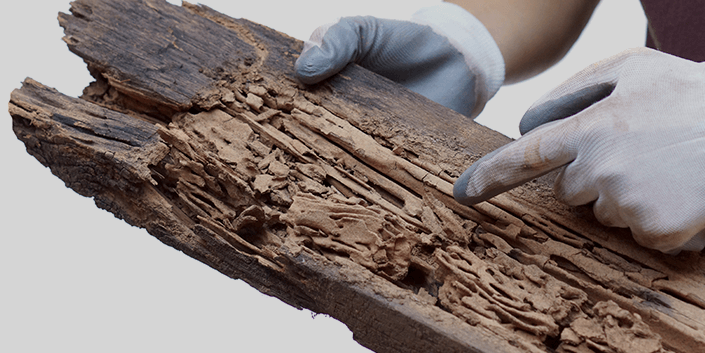
What Are the Common Food Sources for Termites?
What Do Termites Eat?
Simply put? Termites feed on dead plant matter.
Houses that are plagued by wood rot and whose surrounding property is covered in leaves and debris are under particular risk for termites because termites actually play a vital role in our ecosystem, breaking down dead plant material into fertile soil to grow new healthy plants. In homes with moisture damage in the walls, the risk for termites is compounded.
So houses are one of the primary targets for termites.
Where Do Termites Live?
Termites are social insects that live in swarms called colonies with worker termites living under a “queen.”
With the exception of flying drywood termites, termites live primarily underground and enter homes from below. If your home is infested, look for bucking wood, hollow or damaged wood, mud tubes or the presence of visible termite activity.
The three common types of termite include:
- Drywood (flying)
- Formosan (live underground)
- Subterranean (live underground)
What Is the Social Behavior of Termites?
Termites live in large groups, some with literally millions of members, and instinctively enforce social hierarchies with the queen at the top and all of her workers doing the chewing. The termite queen is the longest living insect on the planet with a lifespan of 30 to 50 years. As long as she’s alive there will be millions of new termites ready to hatch and wreak havoc on your home. Because of this, it’s critical that you rely on a professional like ours to take care of your termite problem and get rid of the queen!
How Do I Get Rid of Termites in My Home?
For the health of your home, you should seek immediate help in getting rid of termites. Termite eradication is a job for trained professionals. A pest control expert can inspect your home and provide you with an estimate for remediation. Be prepared to replace any parts of your home that have been damaged by termites and be aware that most homeowner’s insurance policies don’t cover damage made by termites. That’s why you’ll want to find a pest control provider that guarantees their service and will inspect your home annually to make sure those pesky critters don’t come back.
How Do I Prevent a Termite Infestation?
You can reduce the chances of termites entering your home by keeping the exterior clear of dead and decaying plant matter. Make sure trees are trimmed back away from the roofline and have a skilled arborist remove any dead branches to ensure no dead wood touches your home.
Keep your gutters cleared of leaves and debris. Keep crawlspaces and under porch areas clear of leaves. If you keep a woodpile, keep it far away from the house. Most importantly, check your home for signs of rot — rain-damaged wood is prime eating for termites.
When Should I Call Pest Control for Termites?
If you’re currently worried your home may have been fallen prey termites, don’t wait for a full-blown infestation to occur before you take action to protect your home! You may have already started looking for answers and providers by conducting searches for “termite exterminators near me” or “pest control near me.” Let us help you end that search right now.
Call Pest Control Experts today to get a free quote and to schedule your home pest inspection as soon as possible!





